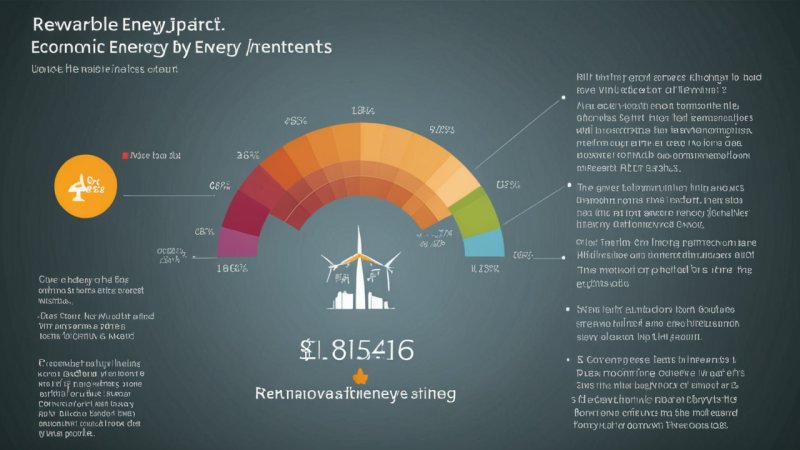The global shift towards renewable energy sources is not just an environmental imperative; it is also a significant economic force that is changing the landscape of markets and industries worldwide. As governments and corporations increasingly prioritize sustainability, the implications of investing in renewable energy are becoming more evident. This article explores the economic impacts of renewable energy investments and how they are reshaping the global economy.
One of the most immediate economic benefits of renewable energy investments is job creation. As countries transition from fossil fuels to renewable sources like solar and wind, new jobs in manufacturing, installation, and maintenance are emerging. For instance, the solar industry has created a significant number of jobs, with the U.S. solar workforce growing by over 20% annually in recent years. These jobs are often local, providing communities with economic opportunities and promoting regional development.
In addition to job creation, renewable energy investments drive technological innovation. The competitive nature of the renewable energy market encourages companies to develop more efficient and cost-effective solutions. This innovation has led to a decrease in the cost of renewable technologies, making them more accessible to consumers and businesses alike. For example, the price of solar panels has dropped dramatically, allowing more households and industries to adopt solar energy without substantial upfront costs. As technology continues to advance, the potential for further cost reductions and efficiency improvements will likely stimulate even more investment.
Renewable energy investments also have the potential to stabilize energy prices. Traditional fossil fuel markets can be volatile, influenced by geopolitical tensions and market fluctuations. In contrast, renewable energy sources like wind and solar are abundant and free once installed. By diversifying energy portfolios and reducing reliance on imported fossil fuels, countries can enhance their energy security and reduce the economic risks associated with energy price volatility.
Moreover, the transition to renewable energy is driving significant changes in investment patterns. Institutional investors are increasingly recognizing the importance of sustainability and the long-term potential of renewable energy projects. As a result, green finance, including green bonds and sustainable investment funds, is on the rise. This shift in capital allocation not only helps fund renewable energy projects but also encourages companies to adopt sustainable practices, aligning economic growth with environmental stewardship.
Lastly, the economic implications of renewable energy investments extend beyond immediate job creation and technological advancement. By mitigating climate change and its associated risks, these investments contribute to long-term economic stability. Climate-related disasters, such as floods and wildfires, can impose significant costs on economies, impacting infrastructure, public health, and productivity. By investing in renewable energy, countries can reduce their carbon footprint and build resilience against climate impacts, ultimately safeguarding their economies.
In conclusion, the economic impacts of renewable energy investments are multifaceted, encompassing job creation, technological innovation, price stabilization, shifts in investment patterns, and long-term climate resilience. As the world continues to embrace renewable energy, the economic benefits will likely expand, creating a more sustainable and prosperous future for all.
Economic Impacts of Renewable Energy Investments
Explore the economic impacts of renewable energy investments and their role in reshaping the global economy.






